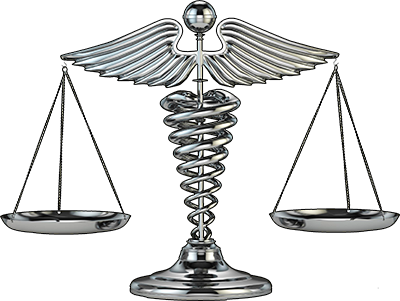WHISTLEBLOWER (QUI TAM) CASES
I. My Experience with Whistleblower Cases
Here is a brief description of the whistleblower cases I have worked on:
Unlawful promotion by a pharmaceutical company of a drug for treatment of traumatic bleeding
Unlawful promotion by a pharmaceutical company of an anticoagulant drug, a hypertension drug and two diabetes drugs, by means of kickbacks and other unlawful activities
Unlawful billing of Medicare by a gastroenterologist for incomplete colonoscopies
Unlawful promotion by a medical device company of biliary stents for unauthorized use in blood vessels
Unlawful billing of Medicare by a cancer center for use of single use vial oncology drugs on multiple patients.
I worked on these cases as a consultant and was called upon to recruit and work with expert witnesses and analyze medical issues concerning certain drugs, medical devices and medical procedures.
II. Background Information on Whistleblower Cases
Healthcare fraud schemes cost the government billions of dollars every year. Between 2009 and 2015, the U.S. Department of Justice pursued enforcement actions for healthcare fraud that recovered $!6.5 billion. 90% of those actions were initiated by whistleblowers.
A whistleblower case begins when a lawyer for the whistleblower files a sealed (confidential) complaint in federal court.
The Department of Justice then investigates the allegations and may elect to “intervene” and assume a lead role in the enforcement action. It generally intervenes when the evidence strongly supports the allegations of healthcare fraud.
Almost all cases with Department of Justice intervention result in recoveries by judgment of the court or settlement. Whistleblowers are awarded 15% to 25% of the recovery. If the government does not intervene, whistleblowers may proceed alone and retain 25% to 30% of a recovery.
III. Prohibition of Retaliation
Federal law strictly prohibits retaliatory action against a whistleblower, such as demotion or termination. The Department of Justice is charged with responsibility to protect whistleblowers against any form of retaliation.
IV. Forms of Fraud
Healthcare whistleblower cases typically allege fraud in the form of:
improper billing;
illegal marketing of a product or service, including marketing of drugs or devices for unauthorized (“off-label”) purposes (see below);
inappropriate financial relationships, including kickbacks; and/or
misuse of government funds.
The most common offense alleged in these cases is billing fraud, which may involve:
upcoding (billing the government for more complex or expensive products or services than actually provided);
unbundling (separating products or services that should have generated one claim for reimbursement into several claims);
phantom billing (billing for products or services not provided);
falsifying documentation;
inflating prices;
billing for medically unnecessary products or services; and/or
billing for ineffective products or inadequate services.
V. Background of Whistleblowers and Defendants
Whistleblowers in successful cases include:
Administrators and executives;
Physicians, nurses and other healthcare workers;
Pharmacists;
Patients;
Sales representatives and other employees;
Internal accountants; and
Unaffiliated auditors or consultants.
Defendants in these cases include:
hospitals and healthcare systems;
physicians and physician practices;
laboratory service providers;
billing companies;
durable medical equipment suppliers;
pharmacy providers;
home health service providers;
dialysis providers;
skilled nursing homes and rehabilitation facilities;
medical device manufacturers; and
pharmaceutical manufacturers.
VI. Pharmaceutical Manufacturers
Enforcement actions against pharmaceutical companies accounted for much of the more than $16 billion recovered for healthcare fraud since January 2009. The most common form of fraud in these cases is improper billing causing Medicare and Medicaid to overpay for prescription drugs.
Many whistleblower cases have been brought against pharmaceutical companies for promoting their drugs for uses not approved by the U.S. Food and Drug Administration (FDA).
Physicians are permitted to prescribe drugs ‘’off-label’’—that is, for purposes and types of patients other than those formally approved by the FDA. However, the FDA prohibits pharmaceutical companies from directly promoting unapproved uses.
The FDA defends this prohibition on the grounds that:
(1) unapproved uses are not based on evidence of efficacy and safety;
(2) they expose patients to uncertain benefits and the prospect of adverse effects; and
(3) they undermine incentives for manufacturers to conduct clinical trials necessary to achieve FDA approval for new uses.
The FDA considers drugs to be misbranded when they are promoted for indications which have not been approved— a practice referred to as off-label promotion. Under federal and state rules, providers cannot be reimbursed for misbranded drugs.
The largest settlement in a case of healthcare fraud in the United States involved off-label promotion, kickbacks and other misconduct by the pharmaceutical manufacturer, GlaxoSmithKline.
In that 2012 settlement, GlaxoSmithKline agreed to pay $3 billion for offenses which included off-label promotion of the antidepressant Paxil for children and the antidepressant Wellbutrin for weight loss, sexual dysfunction and substance abuse.
The government also accused GlaxoSmithKline of offering kickbacks to physicians to prescribe and promote its drugs, including cash, trips to Florida and lavish resorts and tickets to basketball games. Two whistleblowers, a former senior marketing development manager and a former regional Vice President, provided the government with overwhelming evidence to support these allegations.
Similar charges have led to settlements with Bristol-Myers Squibb ($515 million), Merck ($650 million), Eli Lilly ($1.4 billion, Cephalon ($425 million), Bayer ($257 million) and many other drug companies.
A case brought against Johnson & Johnson is perhaps the best illustration of the harm that can be caused by off-label promotion. In 2013, Johnson & Johnson and its subsidiaries agreed to pay over $1 billion for off-label promotion of antipsychotic medications to control behavioral symptoms in elderly patients with dementia. That use was ineffective and it substantially increased the risk of death in dementia patients receiving the drug.
REFERENCES
1. Annual U.S. Department of Justice News Releases on Recoveries from False Claims Act Cases, Fiscal Years 2009-2015.
2. Inglehart JK. Finding Money for Health Care Reform — Rooting Out Waste, Fraud, and Abuse. N Engl J Med 2009; 361:229-231.
3. Rodwin MA. (2013) Rooting Out Institutional Corruption to Manage Inappropriate Off-Label Drug Use. The Journal of Law, Medicine & Ethics 41, 654-664.
4. Outterson K. Punishing Health Care Fraud — Is the GSK Settlement Sufficient?
N Engl J Med 2012; 367:1082-1085.


